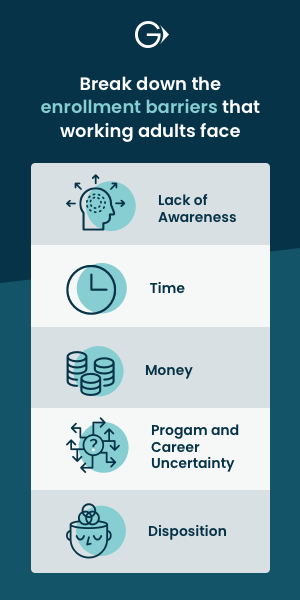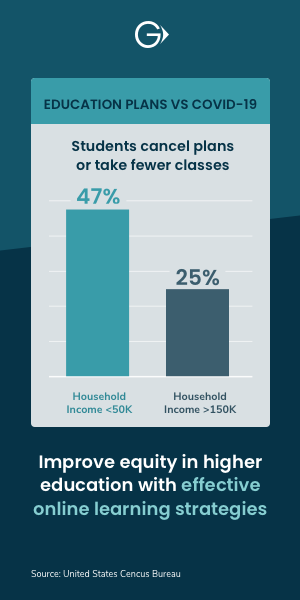The workplace is changing, but universities can bridge skills gaps through innovations in new modes of teaching
The evolution of the modern workplace has created an urgent need for industry-focused skills that can be augmented and enhanced over the course of a person’s lifetime. While universities are uniquely positioned to provide individuals with such skills, they face a number of challenges.
At a webinar hosted by Times Higher Education in partnership with Guild Education, experts from across the US higher education sector discussed the role digital education can play in creating new pathways for upskilling. Dr Lisa McIntyre-Hite, senior principal of learning solutions at Guild Education, outlined why skills-based learning was a growth market.
In the US alone, some 88 million adults are presently in need of upskilling. This was crucial to economic mobility in an ever more itinerant jobs market. The global management consultancy McKinsey estimates that over 15 million jobs could be lost to automation within the next decade. With learned skills having an estimated half-life of five years in today’s job market, reskilling is not simply a question of career advancement, but of necessity.
“In a 50-year career, an employee should upskill about 10 times,” said McIntyre-Hite. “The need for effective lifelong learning solutions and opportunities to upskill and reskill has never been more poignant, never been greater.”
Higher education’s en masse pivot to digital teaching in light of Covid-19 restrictions demonstrated the resilience of university teaching and the student body. But there remained a gap in the quality of education between online and traditional in-person settings. According to the Gallup State of the Student Experience: Fall 2020 Report, 60 per cent of students reported a decline in the quality of their education, with almost half of faculty disclosing that the same instructional materials were used for online delivery as in-person settings. Digital equality, isolation and student support complicated the delivery of higher education.
There was a consensus that digital education was effective, viable and inevitable, but to realise its potential, higher education institutions needed to design programmes in which digital content was linked to specific learning outcomes, with digestible modules offering flexible learning pathways.
Blakely Pomietto, senior president and chief academic officer at the University of Maryland Global Campus, said that access to faculty was a key component of a successful digital education programme. In a remote learning environment, video could bridge the gap between teacher and student, enhancing engagement. But it was important to acknowledge that not all were comfortable with the format.
Dr Liesl Folks, senior vice-president of academic affairs and provost at the University of Arizona, noted reticence from students and staff alike, with professors finding blank screens difficult to engage with, and many students uncomfortable having a camera trained on them during the learning experience.
She said that human engagement was key to successful online teaching. If the digital delivery of education could create flexible modes of learning, bite-sized learning programmes for upskilling and more opportunities to engage an individual across the course of their career, it was vital that the human element was not lost.
Michael Pippenger, vice-president and associate provost of internationalisation at the University of Notre Dame, said it was a case of reskilling the university as well as the student. He said that Notre Dame’s experiences with hybrid learning were an education for staff and students alike.
The panel heard how the perspectives of industry and higher education differed with regards to learning, but collaborations with industry on specially designed programmes can offer employees a clear path to career progression.
Lorrie Dodge, vice-chancellor of institutional assessment and planning at Brandman University, said that assessment was key. Assessing competencies and offering a curriculum that can accommodate a student’s schedule can enhance retention and engagement.
Watch the webinar on demand above or on the THE Connect YouTube channel.
Find out more about Guild Education.






